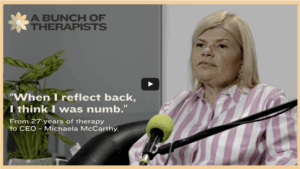Understanding the Unconscious Mind
Psychodynamic therapy, rooted in the work of various schools such as Lacanian, Kleinian, and Adlerian, explores the depths of the unconscious mind, which contains memories, desires, and emotional thoughts beyond our conscious awareness. These unseen factors have a significant impact on our behaviours, emotions, and mental health.
The Role of Unconscious Mechanisms
Our unconscious mind can store and conceal unresolved conflicts and repressed memories throughout our entire lifespan. These unconscious mechanisms can bring about anxiety, depression, and other psychological challenges, causing barriers to our personal and professional growth, fulfilment, and relationships. Hence frequently, we get triggered by others’ behaviors without understanding why or we experience overreactions to an event that stimulated such memory or unresolved dispute.
Our emotional responses habitually align with the power of our conscious filters, influenced by societal duties and morals. We all naturally strive for acceptance and become aware of our attitudes when surrounded by others. Meanwhile, a deeper instinctive response is suppressed, yet passively embodied and replayed. This duality in our relational responses can have long-term effects in our worldview, workplace dynamics, and interpersonal relationships, especially for couples. Frequently, the issue isn’t the superficial problem presented, but an imprinted response pattern replicated and suppressed throughout the relationship. Here, the unconscious mind becomes the gateway to uncovering what truly needs to be addressed.
Phenomena of unfiltered instinctive responses with reduced self-control, when displayed in the presence of others, will suggest some form of resistance against the morals and ethics of the surroundings – this could be Law, too – potentially produced by the omission of care, attention, and love. Whilst such may not become conscious along the enacted behaviour, it is again the unconscious mind’s role to reveal what has been going on.
The Superpower and Weaknesses of the Unconscious Mind
The unconscious mind holds immense power, primarily because it operates outside the concept of time. Its natural timelessness allows current events to trigger reactions as if they were past traumas, leading to intense emotional responses without conscious awareness. This is why individuals may show intensified reactions against less intense situations that partially mirror or carry similarities of their lived experiences, nonetheless, without the conscious mind, the logic being able to explain why. Additionally, in order to protect ourselves from psychological pain, we develop defence mechanisms, additional unconscious mind’s powers, such as repression, denial, projection. While these defenses are there to protect us and offer a temporary shield, they hinder the potential of significant emotional healing and self exploration. Hence, it is important for the psychodynamic therapist to discern, identify and bring them to light.
On the other hand, the unconscious mind can merely perceive energy, and not forms, shapes, or objects. And this is its weak point that therapy uses as a gateway! Revisiting traumatic events in a safe environment allows the psychodynamic therapist to help clients register a safer, more self-aware, unheavy, more supported and self-empowered response around the trauma. The process of psychodynamic therapy unfolds in a manner that encourages the cognitive functions of the client’s brain, especially amygdala and hypothalamus to retrain, desensitise and develop immunity against the original triggers, allowing the brain to naturally process the core issues. This is described as “catharsis”, better understood as purification. Through this process, clients learn to manage their reactions more effectively.
Healing Through Insight and Integration
As clients uncover and address unconscious material, their journey leads them to experience profound healing that can result in meaningful changes in their lives and more authentic relationships.
The Importance of the Therapeutic Relationship
The relationship between the therapist and client is crucial in psychodynamic therapy. Built on trust and empathy, this relationship provides a safe space for clients to explore their inner world without any fear of judgment. This supportive bond enables clients to confront and work through deeply buried issues.
Psychodynamic Therapy: Bridging Tradition and Contemporary Neuroscience together
Despite being one of the oldest forms of psychotherapy, psychodynamic therapy’s concepts, such as the unconscious mind, repression, and defence mechanisms, are rooted in human neuroanatomy and brain functions. These notions have gained recognition in contemporary neuroscience, placing psychodynamic therapy at the top of the most up-to-date and effective methods for therapeutic and relational healing.
Transforming Lives Through Psychodynamic Therapy
Psychodynamic therapy offers a pathway to profound self-discovery and healing. By uncovering and addressing unconscious mechanisms, individuals can achieve greater self-awareness, emotional freedom, and psychological well-being. The journey through the unconscious mind is challenging yet deeply rewarding, paving the way for a more authentic and fulfilling life.
If you are interested in exploring psychodynamic therapy with Hyacinthos Christou, or any of our other private therapists, please call our reception team on 020 8673 4545 or email [email protected]. Sessions are available seven days a week at our centres in Clapham and Tooting.




